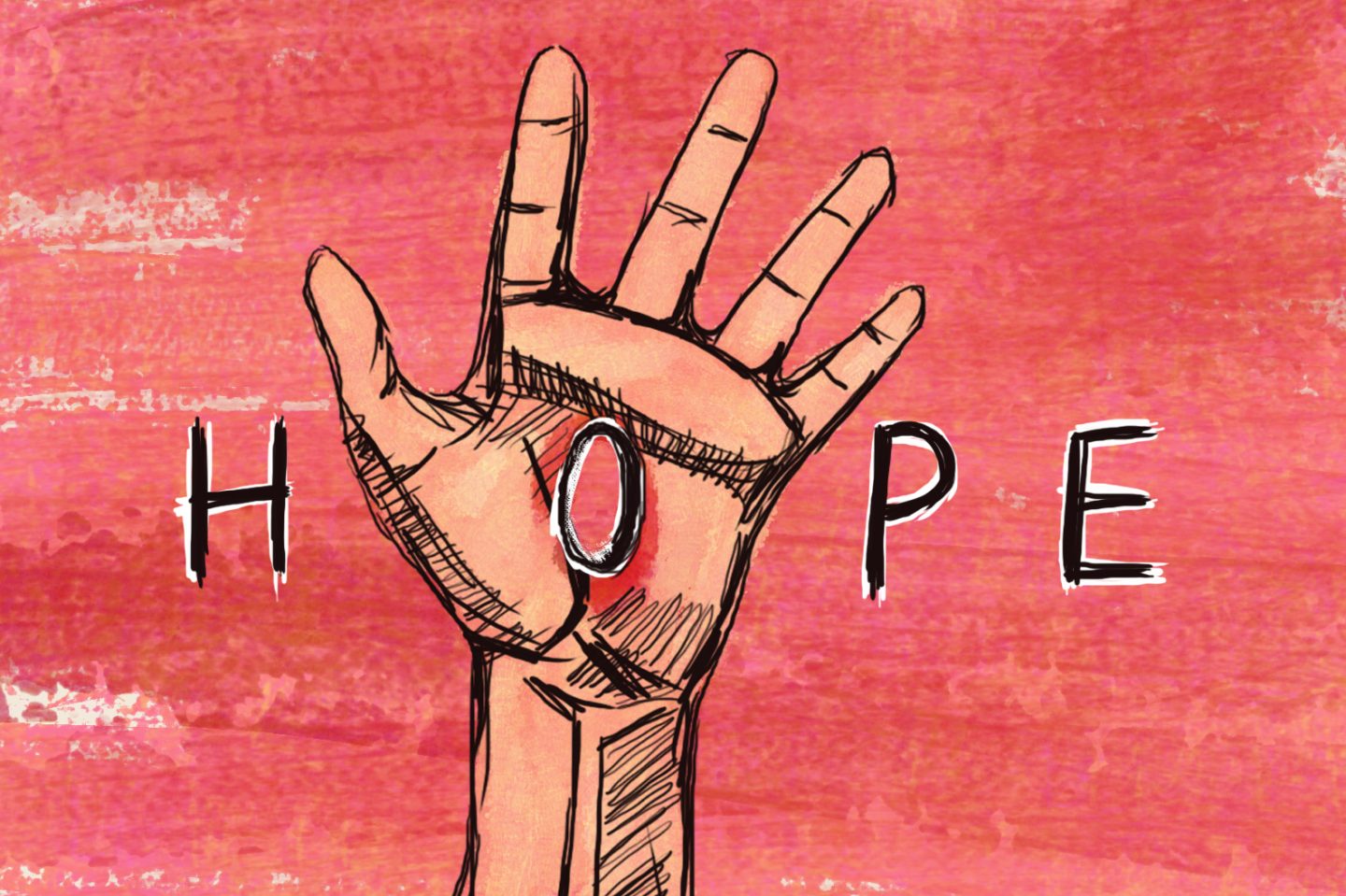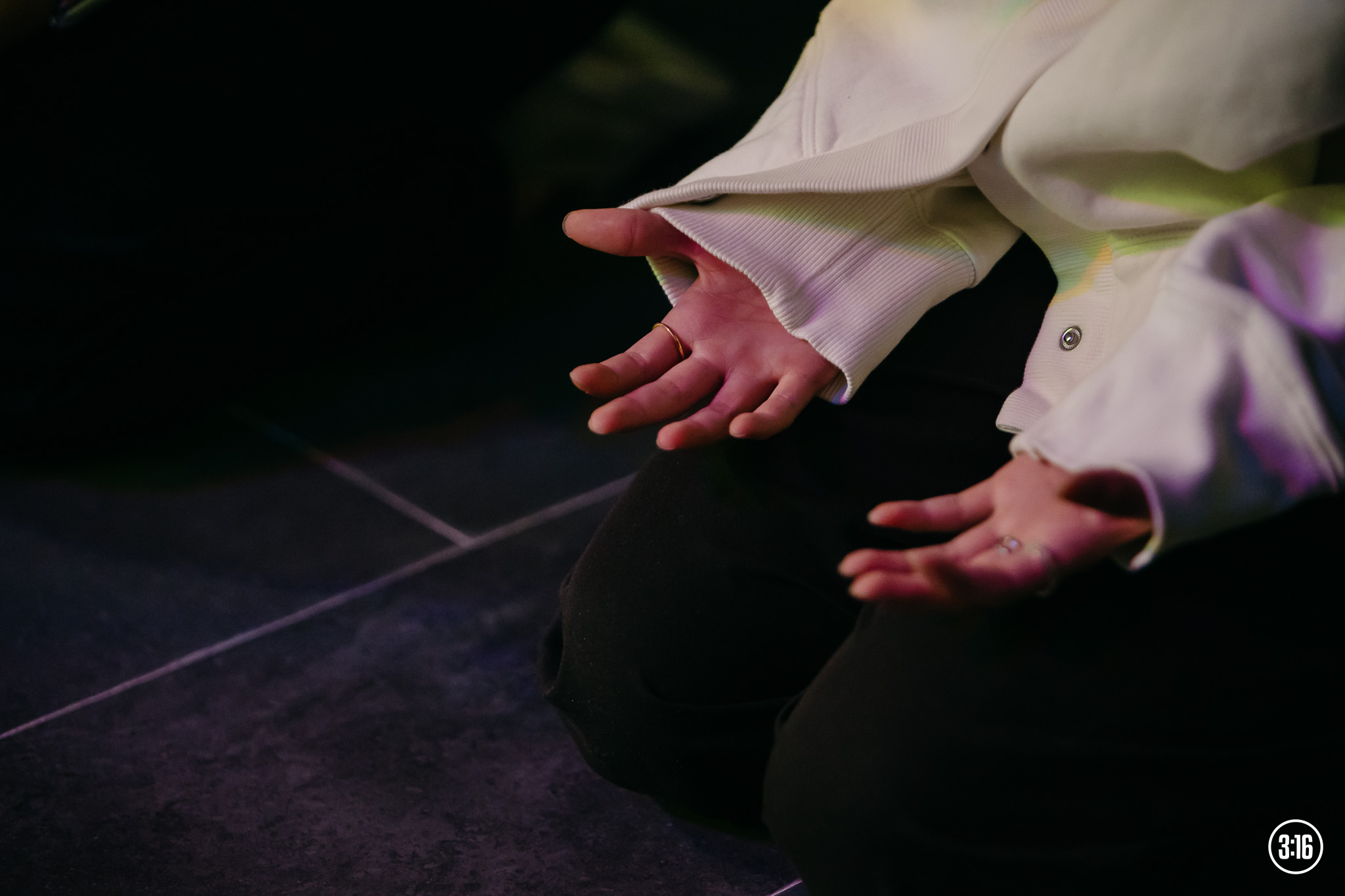Life is fragile.
Its flickering flame can be quenched by freak accident or slowly exhausted by the siege of terminal illness.
But don’t be fooled: Youth, health, education, career are illusions. Time catches up eventually, whether or not you behaved good, studied hard or married right …
Then Jesus shakes everything up with the Resurrection.
It’s timely, because the Resurrection addresses a timeless human problem: Existence will someday cease. The good news: Death isn’t the end. The bad news: The monster of death still lurks, and futility is its hellish roar.
How does one live meaningfully in the face of inevitable death?
The historicity is rigid: The Resurrection is either true or false. You might not be able to explain or support it with flawless philosophical certitude, but what you ultimately believe about it makes all the difference in your ephemeral life.
Belief. Unfortunately, that’s where most of us fail – understandably – because it’s so, so hard to believe. Weary with the old narrative of pain, disease and death, we straddle the fence hopeful, but fearful of where hope might lead.
These few weeks, I’ve watched my once-spirited aunt fight a long-drawn battle with cancer.
It’s mostly retrograde. Apart from her body reaching new all-time lows, I also observed the harrowing ordeal of a faith flung into the furnace.
These days, she’s a shadow of her former self. She cries. She’s anxious. Worn out. She grabs our hands a little tighter than before and, with each laboured breath, the elephant in the room grows.
As we leave her each night, we pray. Her eyes often remain closed for a few moments thereafter – weariness, medication, or quiet resignation to the grand futility of it all, I can’t tell.
How does one live meaningfully in the face of inevitable death?
Suffering raises hard questions. Does God hear us? Does He even care? Is He so cruel to design a cosmos in which the path to redemption takes us through the most debilitating, hellish pain? Hospital wards are echo chambers for the screams of futility.
“For whoever would save his life will lose it, but whoever loses his life for my sake will find it.” (Matthew 16:25)
John’s gospel presents us with two examples of faith. There’s Peter and John – fishermen who believed almost instantly because they came and saw (John 1:39). Then there’s Thomas, that man of little faith (John 20:25).
In typical ecclesiastical fashion, popular exhortation tells us to be like Peter and John, not Thomas. Just believe.
But instead of seeing in “doubting” Thomas a caricature to be mocked, we need to see that Thomas represents the typical 21st century human.
In fact, with his level of cynicism, he could’ve well been Singaporean! (Kidding. Maybe.)
In other words, we are Thomas. A sceptical education and real brokenness leave their mark. Like Thomas, we think we’d live simpler lives without the Resurrection. But Resurrection found Thomas in his doubt. Jesus breathed into his chains and they became wings.
Doubt was merely a symptom of a mind that knew the implications of truth: If Jesus did rise from the dead, then Thomas knew his life had to change radically, whether he liked it or not; whether he understood or not. He didn’t grab the gospel in desperation.
It grabbed – transformed – him.
Thomas even went on to proclaim the boldest Christological statement recorded in the gospels: “My Lord and my God!” To call Jesus God – not Master, Messiah, Teacher – was something no other Apostle managed to put so clearly.
As we grapple with the Resurrection in our brokenness, Thomas’ big question confronts us afresh: Do we really believe in a risen Christ?
Maybe. A little? It’s easy to die for something, perhaps harder to live fully for something. But to reverse the natural order of life/death is an absurd mockery of our survival instincts.
We settle for the slushy middle ground, focusing on the easy parts of the gospel: Feed, heal, love. At the core of Christian living lies the cross, to which our sins were nailed and destroyed once and for all. Amazing grace.
Jesus lived and died for you, His beloved. Now He’s back with holes in His hands.
That’s all good, but where does Resurrection fit in? A song at church each week, perhaps. You know it’s marginalised, pushed to the fringes of our daily exercise of faith. Abstract, like the sparkle on the crest of a crashing wave. Like Thomas, who refused belief without real sensory experience, we can only wonder about the blessedness that comes with blind belief.
That’s where we’re wrong.
We must choose either belief or disbelief.
It’s no easy choice. We look at dim mirrors. But as Thomas discovered, thanks to the Resurrection, belief doesn’t have to be blind.
Lamenting in hospital every night often makes me forget that most of my aunt’s life has been a miracle. She’s had cancer before – when young – along with the whole slew of accompanying ailments, each with the potential to herald in the grim reaper. But she’s always hoped in God.
The odds are never in her favour, but with her final breaths she still proclaims God’s grace because she knows His goodness. A life lived for God cannot be measured in years. This episode’s especially trying. But through the weeks, we wonder at how this shadow-of-her-former-self can stare death in the eye and find peace.
Even within, I wrestle hard with how God made me: Mind restless, soul never satisfied, spirit perpetually in fragments. Isolated and constantly tormented. “Dissociated,” says a certain counsellor. Well-meaning friends sometimes suggest medication, or a girlfriend.
Maybe you wrestle too, in uniquely terrible ways. It all seems dreadfully cruel, but what if your Creator knows exactly what He’s doing?
He’s already lived and died for you, His beloved. Now He’s back with holes in His hands. We find ourselves standing alongside Thomas, facing a risen Jesus. Reach, touch, cry if you must.
Your scepticism, brokenness and anguish, when submitted to God, are ideal ingredients for powerful redemption.
Belief is not merely a line to be crossed, but the step-by-step walking of a path towards Jesus.
That’s why I believe vestiges of death still remained on Jesus’ glorified body. That you may believe and have life. He speaks through wounds and scars (including His own) so all may see through Resurrection eyes. But more so, He shows us that God often works (metaphorically) through those carrying crosses.
Now His Spirit whispers to yours, “My child, where there is pain, death and despair, pray with your eyes open. I’m here, and I’m risen.”
Resurrection empowers you to stand against the rising tide of sin and grave, to dance to the roar of futility with holes in your hands, to seize the hope that accompanies despair, and see that even though death so frustratingly abounds, death isn’t the end.
The belief Jesus demanded of Thomas wasn’t purely intellectual. To the ancient Greeks, belief implied “throwing ourselves” at something. Despite existential uncertainty, Resurrection demands a decision: Deny it and life resumes. Seize it and it changes everything.
Resurrection empowers you to stand against the rising tide of sin and grave, to dance to the roar of futility with holes in your hands, to seize the hope that accompanies despair, and see that even though death so frustratingly abounds, death isn’t the end.
Thomas knew. And boy did he believe!
He didn’t go back to the desirable Roman lifestyle of gladiators, baths, lavish spas, families and children. He saw all that and walked in the opposite direction. The story goes that he preached a risen Christ to as far as India, where churches today still bear his faith legacy, and where he was ultimately martyred.
For ourselves, belief cannot be one-off.
Resurrection means your plans are continually wrecked, your compass constantly shaken, and your spirit perpetually thirsty for the only One who satisfies.
It’s rarely comfortable, but it’s the only life that doesn’t echo futility’s screams. Like Jesus, you don’t carry those vestiges in vain. Like Thomas, your chains become wings; death is not your end.
This Easter, regardless of what you make of original sin, how literally you read the Bible, how you stumble or how your heart bleeds, ask God for the faith to not just recount the event that changed the course of history forever but to truly, courageously, boldly believe.
To search far enough to make up your mind, but not fall off the edge.
To throw yourself in and not look back, because the risen Prince of Peace holds our hand as we follow His footprints to the grave and beyond.









